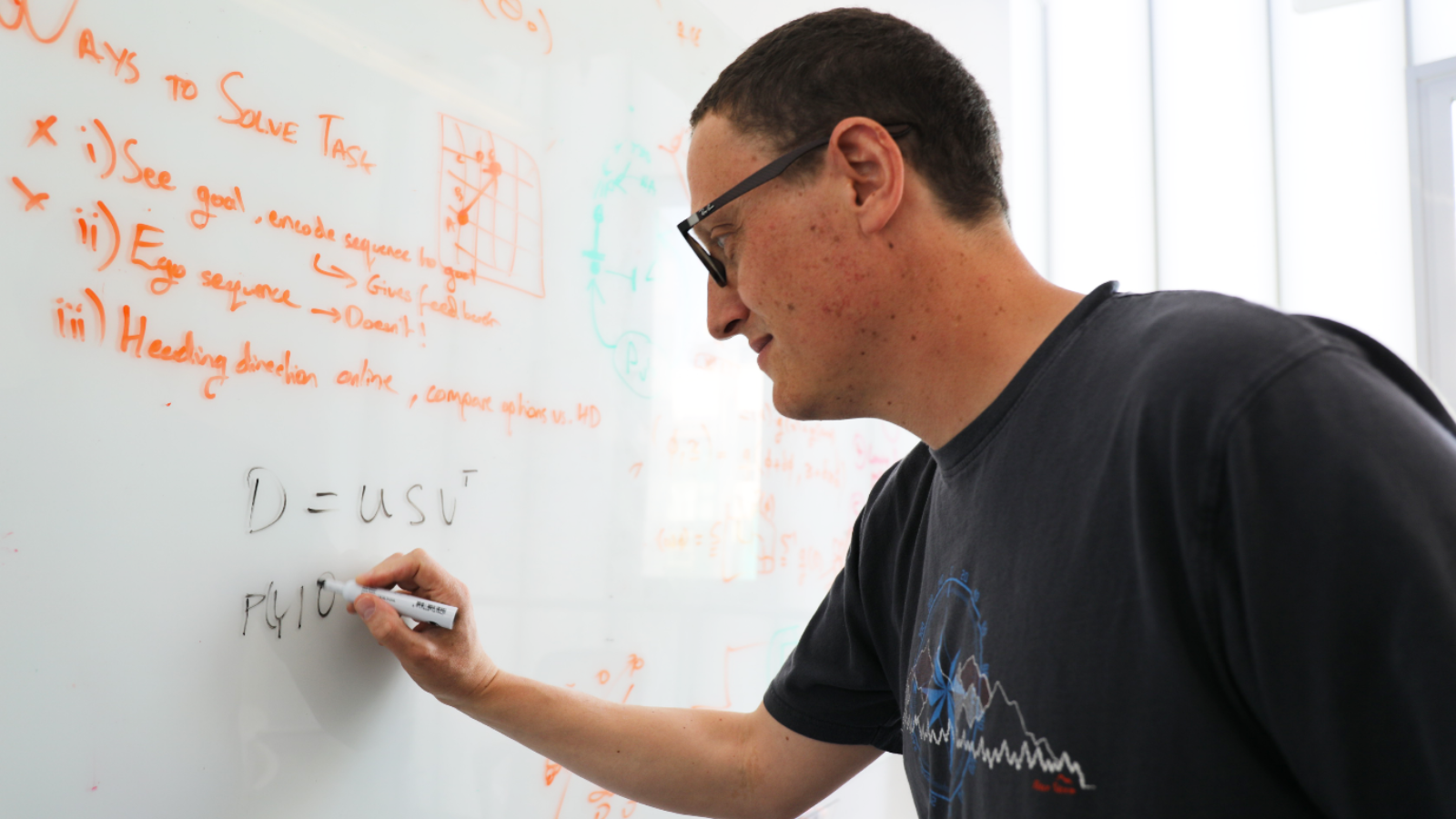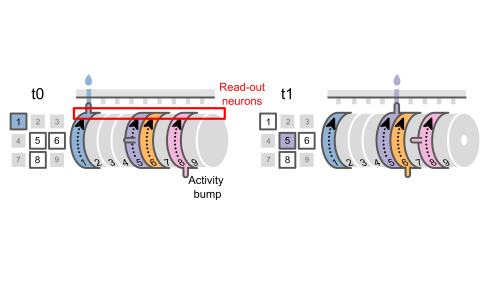
Professor Tim Behrens awarded prestigious Faraday Discovery Fellowship
The Royal Society awards 10 years of core funding for research in the Behrens lab at SWC and Oxford
The Royal Society has awarded a Faraday Discovery Fellowship to Professor Tim Behrens, joint Group Leader at the Sainsbury Wellcome Centre at University College London (UCL) and Nuffield Department of Clinical Neurosciences at the University of Oxford.
Professor Behrens will use the funding to investigate how the brain builds internal models of the world and how the underlying neuronal connections are shaped through learning. His lab will also test whether these patterns match predictions made by theories in computational neuroscience and artificial intelligence.
“This Faraday Discovery Fellowship will allow us to make a sustained attack on one of the most interesting questions to face our species – the mechanistic basis of our own intelligence. Having ten years of stable funding will allow us to ask the deepest, most ambitious questions that we can think of. I am feeling very lucky indeed!” commented Professor Behrens.

The Faraday Discovery Fellowships are large, investigator-led grants awarded to a single Principal Investigator (PI) to enable them to establish an outstanding team of researchers to address challenging research questions. The programme provides the most talented mid-career researchers with the time and freedom to focus on their research, providing long-term, stable funding to allow them to tackle difficult and intractable problems.
The Behrens Lab researches some of the most complex human behaviours, such as reasoning and planning. “To plan effectively, we need to know the relationships between objects and events in the world – we need a model of the world inside our brains,” Professor Behrens said. “As part of the Faraday grant, we will try to find out what this model looks like, in terms of the neurons in our brains and the connections between them.”
“We will also determine whether we can establish rules that the brain uses to build models, from the simple models that might be used for a mouse navigating a maze, all the way to complex models that underlie sophisticated human reasoning,” said Professor Behrens.
In addition to Professor Behrens, the Royal Society Faraday Discovery Fellowship fellows for 2026 are: Professor Yiliang Ding, John Innes Centre, Professor Katie Field, University of Sheffield, Professor Hayley Fowler, Newcastle University, Professor Andrew Goodwin, University of Oxford, Professor Kim Jelfs, Imperial College London, and Professor Andrea Vedaldi, University of Oxford.
“This exciting first cohort of Royal Society Faraday Discovery Fellowship fellows are using cutting-edge techniques to explore questions at the frontiers of human knowledge. From the ways in which human, or artificial, intelligence builds understanding of the world, to investigating the atomic-to-atmospheric-scale systems that could unlock new materials, strengthen food security and support our resilience to climate change.
“These 10-year fellowships give researchers space to pursue new knowledge, build their research groups and develop close collaborations around the world that will ensure the UK continues to develop and attract the next generation of scientific talent and bring benefits to the whole country,” said Sir Adrian Smith, President of the Royal Society.
"Turbo-charging our world-class institutions with the very best research talent will be critical to unlocking breakthroughs that could help protect our food chains, put AI to work in the economy, and tackle climate change. That's why DSIT has backed the Royal Society with £250 million in long-term funding to support the work of mid-career researchers who are at the top of their game.
"These seven talented researchers will only bolster the rich diversity and quality of scientific enquiry, that's happening in the UK. Whether it's through backing for our homegrown researchers and innovators through our record £22.6 billion commitment to R&D, or through the over £115 million funding we're using to bring the world's best research talent here too, we're determined to see brilliant ideas brought to life, here," said Lord Vallance, UK Science Minister.
To find out more, please visit the Behrens Lab page.
About the Faraday Discovery Fellowships
The Faraday Discovery Fellowships are prestigious long-term awards that support the most talented mid-career research leaders to undertake high-quality, original research. The programme provides grants of up to £8m over a ten-year period to support the development of world-leading research groups in the UK. For more information, please visit: the Faraday Discovery Fellowships webpage
About the Royal Society
The Royal Society is a self-governing Fellowship of many of the world’s most distinguished scientists drawn from all areas of science, engineering, and medicine. The Society’s fundamental purpose, as it has been since its foundation in 1660, is to recognise, promote, and support excellence in science and to encourage the development and use of science for the benefit of humanity. For more information, please visit: the Royal Society website
Media contact
For more information or to speak to Tim Behrens, please contact:
April Cashin-Garbutt
Head of Research Communications and Engagement, Sainsbury Wellcome Centre
E: a.cashin-garbutt@ucl.ac.uk T: +44 (0)20 3108 8028


